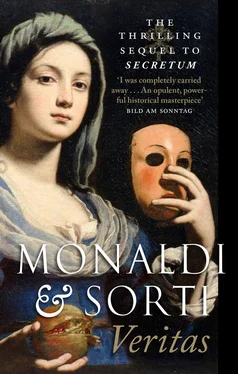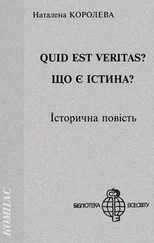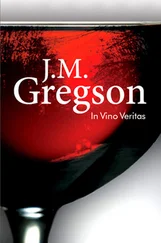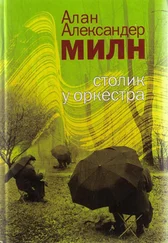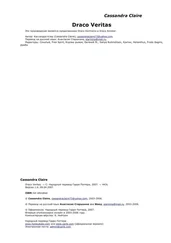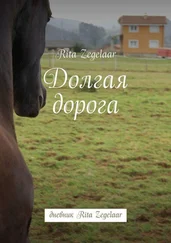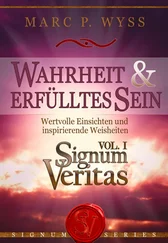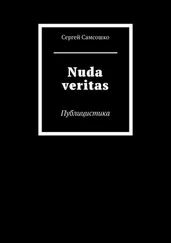Rita Monaldi - Veritas
Здесь есть возможность читать онлайн «Rita Monaldi - Veritas» весь текст электронной книги совершенно бесплатно (целиком полную версию без сокращений). В некоторых случаях можно слушать аудио, скачать через торрент в формате fb2 и присутствует краткое содержание. Жанр: Исторический детектив, на английском языке. Описание произведения, (предисловие) а так же отзывы посетителей доступны на портале библиотеки ЛибКат.
- Название:Veritas
- Автор:
- Жанр:
- Год:неизвестен
- ISBN:нет данных
- Рейтинг книги:3 / 5. Голосов: 1
-
Избранное:Добавить в избранное
- Отзывы:
-
Ваша оценка:
- 60
- 1
- 2
- 3
- 4
- 5
Veritas: краткое содержание, описание и аннотация
Предлагаем к чтению аннотацию, описание, краткое содержание или предисловие (зависит от того, что написал сам автор книги «Veritas»). Если вы не нашли необходимую информацию о книге — напишите в комментариях, мы постараемся отыскать её.
Veritas — читать онлайн бесплатно полную книгу (весь текст) целиком
Ниже представлен текст книги, разбитый по страницам. Система сохранения места последней прочитанной страницы, позволяет с удобством читать онлайн бесплатно книгу «Veritas», без необходимости каждый раз заново искать на чём Вы остановились. Поставьте закладку, и сможете в любой момент перейти на страницу, на которой закончили чтение.
Интервал:
Закладка:
Throughout our conversation I had kept an eye on Mustafa, incredulous that such an enormous beast, however poorly in appearance, was allowed to stay outside a cage. He tore his meat to pieces, ravaging it with his fearsome fangs and claws; only an attentive eye revealed his advanced age and the lack of that vital force which, had it still been present, would have been the end of me just a few minutes earlier.
Pulling the lion by his chain, the keeper led him out of the stadium. He announced that before I set to work it would perhaps be prudent if he showed me around the place and the other beasts locked up there. He suggested that we should take a short tour, so that I would avoid any other nasty surprises tomorrow. I agreed, although with a touch of anxiety at that word “prudent”, which Frosch had stressed.
“No one ever comes to check up on things here,” remarked the keeper disconsolately.
Unfortunately it was very rare for an imperial commissioner to come and visit the collection of exotic animals in the Place with No Name, Neugebäu. At the court, explained Frosch sadly, this place, which had once been so splendid, had been forgotten about by everyone — at least until the advent of beloved Joseph I. Now the feeding expenses for Mustafa and his companions were paid more regularly, as were their keeper’s wages, and this had made him hopeful for the future of Neugebäu. In particular, three years earlier, in 1708 — it had been the afternoon of Sunday 18th March, Frosch remembered it clearly — the Emperor, together with a great suite of ladies and gentlemen of the court, had accompanied his sister-in-law, Princess Elizabeth Christine of Brunswick-Wofenbüttel, to the Place with No Name. As his brother Charles was in Barcelona staking his claim for the Spanish throne, Joseph had represented him at the marriage celebrated by proxy between Charles and the German princess in Vienna. Then, shortly before she herself set out for Spain to join her husband, Joseph had chosen, as an act of homage, to show her the wild animals kept at Neugebäu, especially the two lions and the panther, which had only recently been acquired. This had been a memorable event in the poor keeper’s forgotten life; with his own eyes he had seen His Caesarean Majesty strolling the avenues of the garden and with his own ears had heard him announce, in youthful, vigorous tones, that the place would soon be restored to fresh life. But time had gone by since then; it was already six years since Joseph I had ascended to the throne and the castle was still in a pitiful state.
“Well, what can we do?” Frosch grunted sadly.
Those days were over, I asserted. Now Emperor Joseph wanted to put everything to rights again; I myself had been summoned to start inspecting the flues and the chimneys. Restoration work would soon get under way.
Frosch’s eyes gleamed with something similar to joy and hope, but a moment later he was staring vacantly again.
“Well, let’s hope for the best,” he concluded dully.
Without adding anything he turned his flask upside down and noted with disappointment that it was empty. He mumbled that he had to go back and see someone called Slibowitz, or some such name, and get it refilled.
Such is the pessimistic nature of the Viennese: subjected for centuries to the same imperial authority, they are always sceptical of any good news, even when it is what they long for. They prefer to renounce all hope and prepare themselves with philosophic resignation to undergo inconveniences they consider inevitable.
As we proceeded I grew aware of a filthy and nauseating stink, and a sort of low-pitched, hostile growling. A little further on a barred fence blocked the way; beyond it was a ditch. Frosch signalled to me to stop. He led the lion forward, drew from his trousers a set of keys, opened a narrow gate in the railing and pushed Mustafa inside. Then he locked it again, turned back to me and led me into a colonnade, which looked down to the right onto a series of ditches, from which came the stink and the grunts. I shuddered as soon as I could peer down: in addition to Mustafa, the ditches held more lions, tigers, lynxes and bears, such as I had only ever seen in book engravings. Frosch was clearly satisfied by my expression, which was one of both amazement and terror. I had never thought to see so many beasts of that size assembled together. From one of the ditches, a tiger cast a suspicious and hungry look up at me. I shivered and instinctively drew back, as if trying to hide behind the railing that protected the visitor from falling into that abyss of jaws, fangs and claws. From each of the ditches rose palpable waves telling of torn flesh, bloody cravings and murderous desires.
“It takes a lot of meat every day. But it’s the Emperor that pays, ha ha ha!” laughed Frosch heartily, giving me such a violent slap on the shoulder that I swayed. Two bears, meanwhile, were fighting over an old bone. Only Mustafa remained all by himself in his pit. He was ill and detested the company of his fellow creatures; he preferred to take a walk every so often with his keeper, Frosch explained.
We turned back. From one of the buildings alongside the spiral staircase I could hear an insistent and noisy chirping. I recognised it at once.
As soon as I entered the building, the chirping grew deafening. It came from birdcages, and the noise and sight instantly took me back to those happy days when I had looked after the aviaries at Villa Spada, in the service of the Lord Cardinal Secretary of the Vatican State. I was well acquainted with the feathered race, and I felt a pang when I saw how Frosch cared for the poor creatures in the Place with No Name. Instead of the commodious aviaries that I had tended at Villa Spada, the cages here were cramped and smelly, only fit for chickens and turkeys. What sunlight there was came filtering in through the door and from a couple of windows. Every specimen was in danger of suffocating, crammed together with dozens of others in the same prison. I saw species I knew, but there were many I had never seen before: marvellous birds of paradise, parrots, parakeets, carpofori , dwarf-birds, birds that resembled bats and butterflies, with wings of gold, jute and silk. The vast cavernous space containing the wretched cages was worthy of attention and admiration: it was a huge stable, as Frosch explained, which someone had decided to embellish with grand Tuscan columns. The upper capitals, close to the ceiling, were linked by great transversal arches, which intermeshed creating a network of vaults, in which light and dark mingled in an artistic contest of honest and decent beauty.
The poor birds, being extremely delicate (even the most robust bird of prey is so in captivity), clearly suffered from their cramped conditions. Frosch explained that these had originally been the stables of the Place With no Name and when the aviaries had fallen into disrepair, no one had troubled to build any new ones; at least in the stables the birds were sheltered from the excessive winter cold, and, as the door could be sealed hermetically, they were protected from the beech martens.
Frosch asked me whether I wanted to visit the rest of the castle now that I was here, but the sun was already sinking and I remembered that I had to walk all the way home. I was also anxious to get back to Cloridia, who — if Simonis had already recounted what had happened — would have fainted by now, at the very least.
I remounted the spiral staircase, bade him a hasty farewell and said I would return the next day.
On my way home, I gave free rein to my thoughts and my memories, which, from the moment we had left the Flying Ship, had been seething away in a corner of my brain.
Could that strange rattletrap really have flown all those years ago? The gazette undoubtedly contained details of pure fantasy, like the sightings of the inhabitants of the moon. But it was hard to believe it was entirely mendacious; the author could have invented with impunity events that had happened in far-off, exotic lands (and God alone can say how many gazetteers have done such things!), but not the arrival of an airship in the very capital of the Empire, where the gazette, although originally written for a fair, enjoyed a wide circulation.
Читать дальшеИнтервал:
Закладка:
Похожие книги на «Veritas»
Представляем Вашему вниманию похожие книги на «Veritas» списком для выбора. Мы отобрали схожую по названию и смыслу литературу в надежде предоставить читателям больше вариантов отыскать новые, интересные, ещё непрочитанные произведения.
Обсуждение, отзывы о книге «Veritas» и просто собственные мнения читателей. Оставьте ваши комментарии, напишите, что Вы думаете о произведении, его смысле или главных героях. Укажите что конкретно понравилось, а что нет, и почему Вы так считаете.
